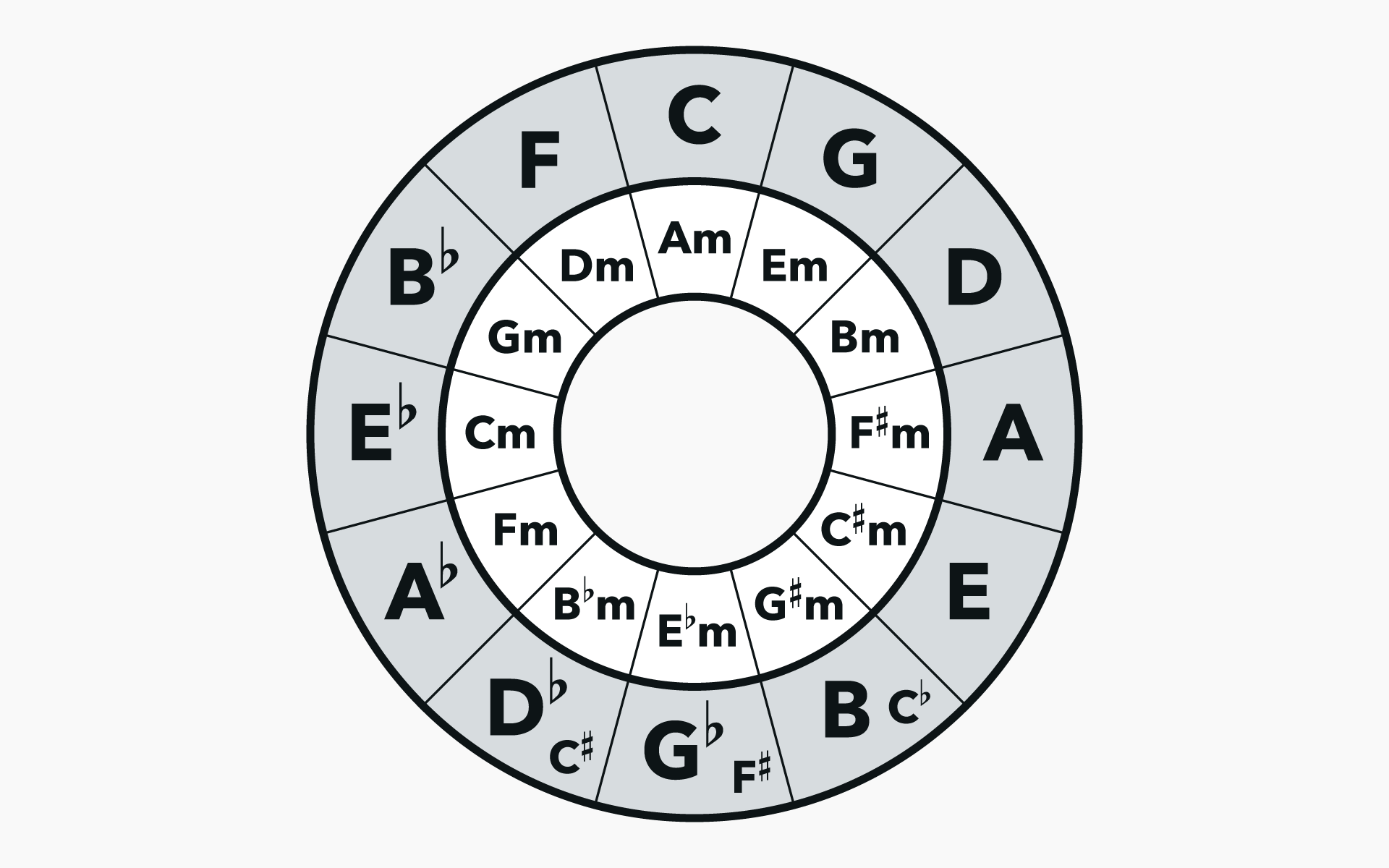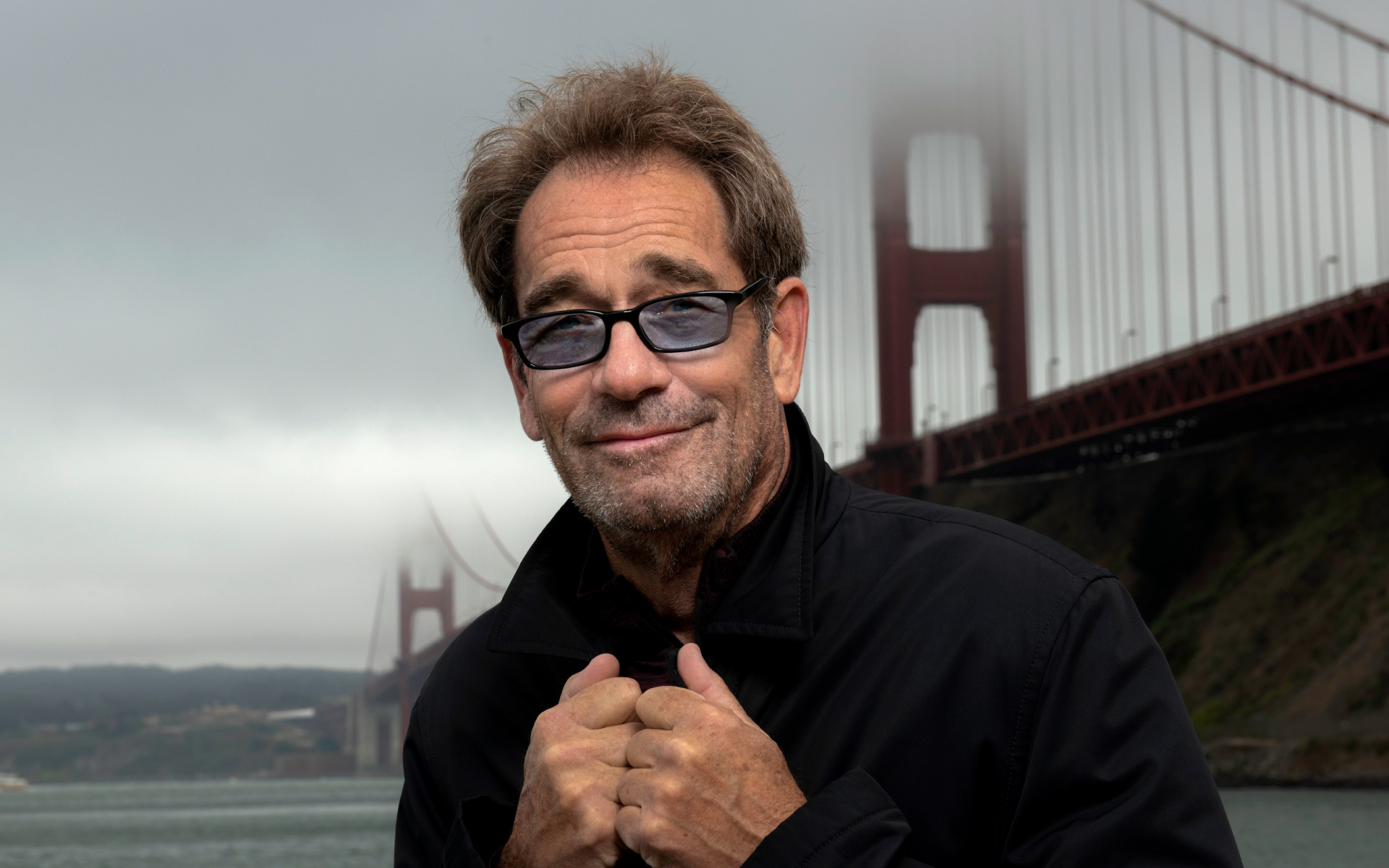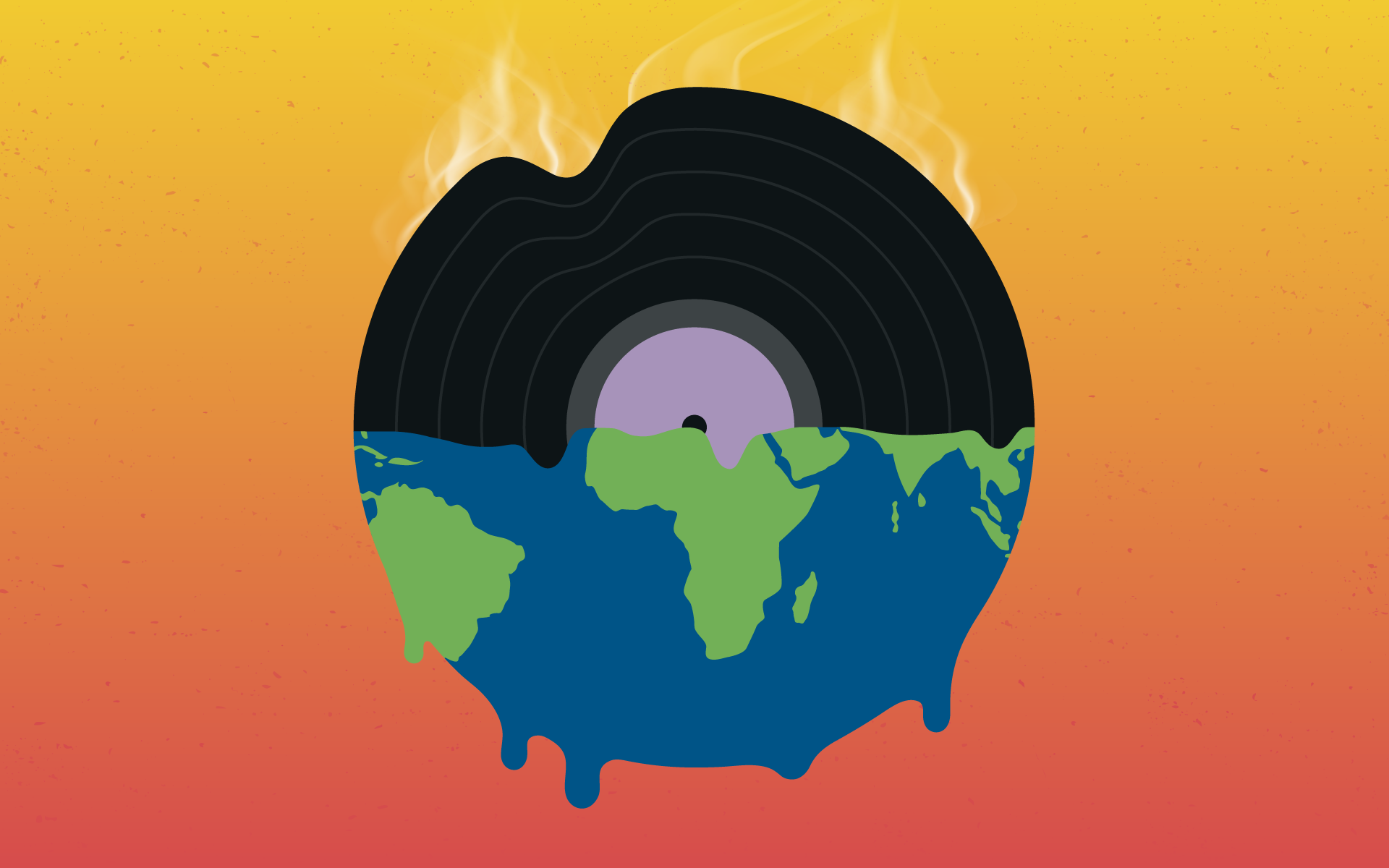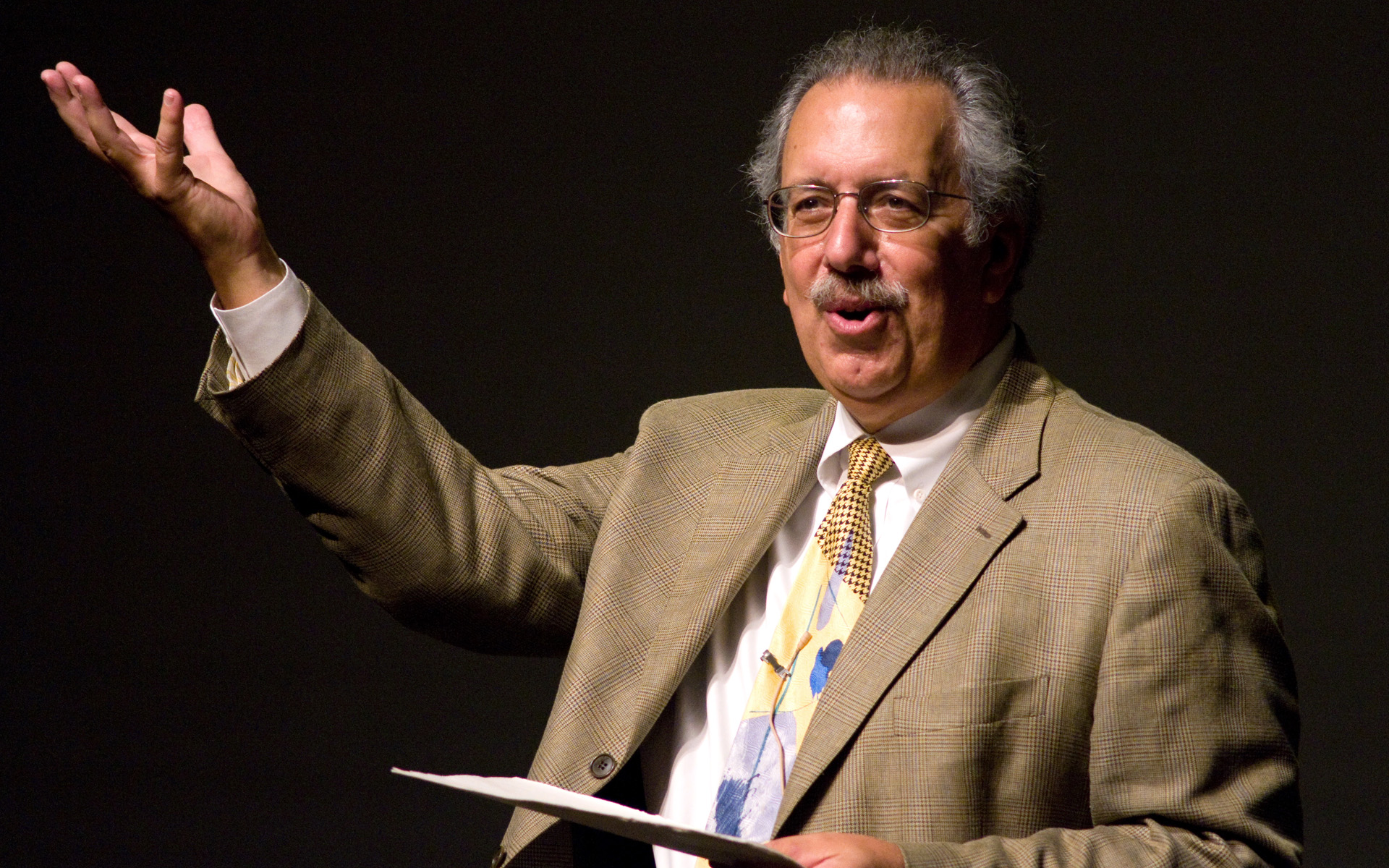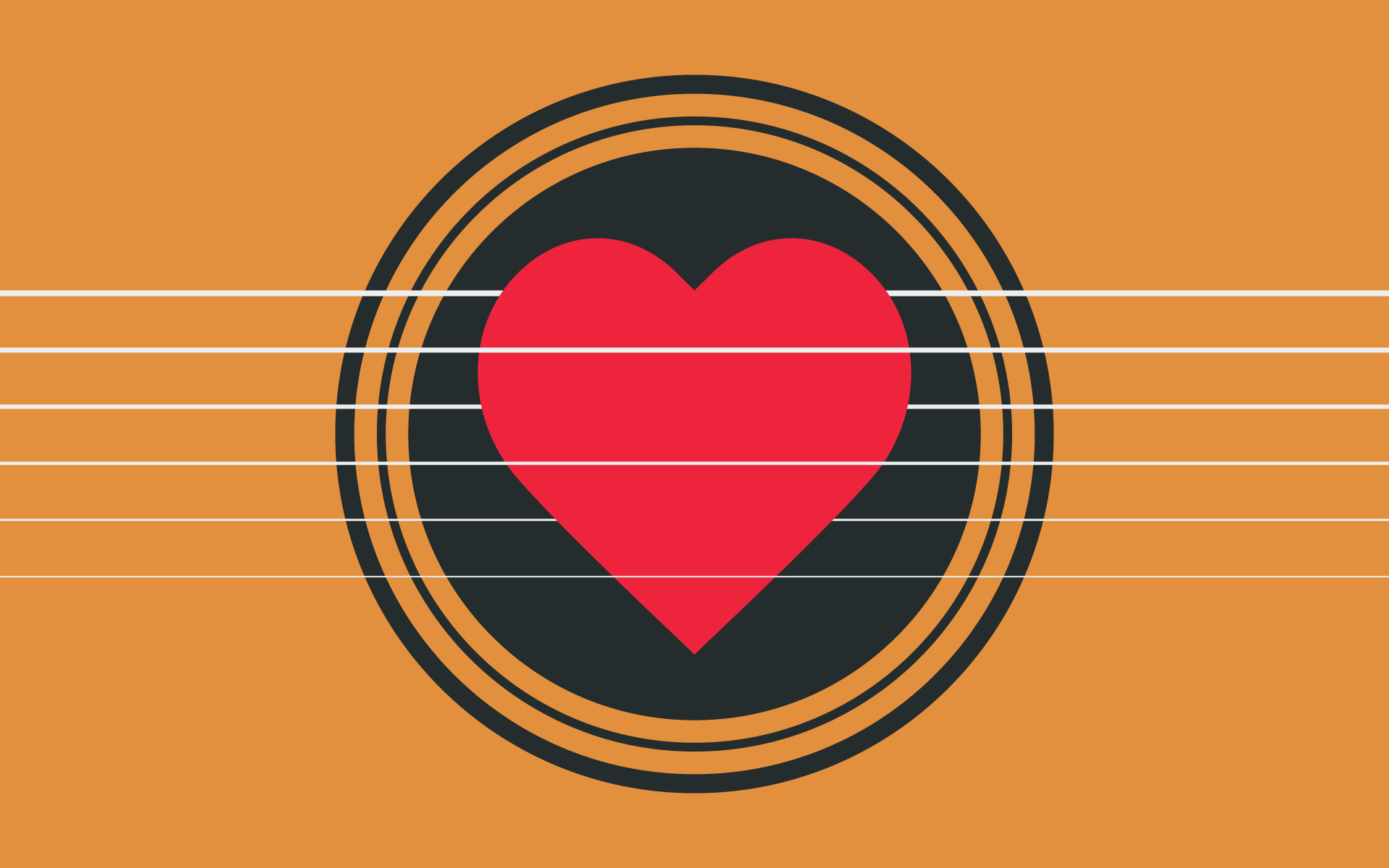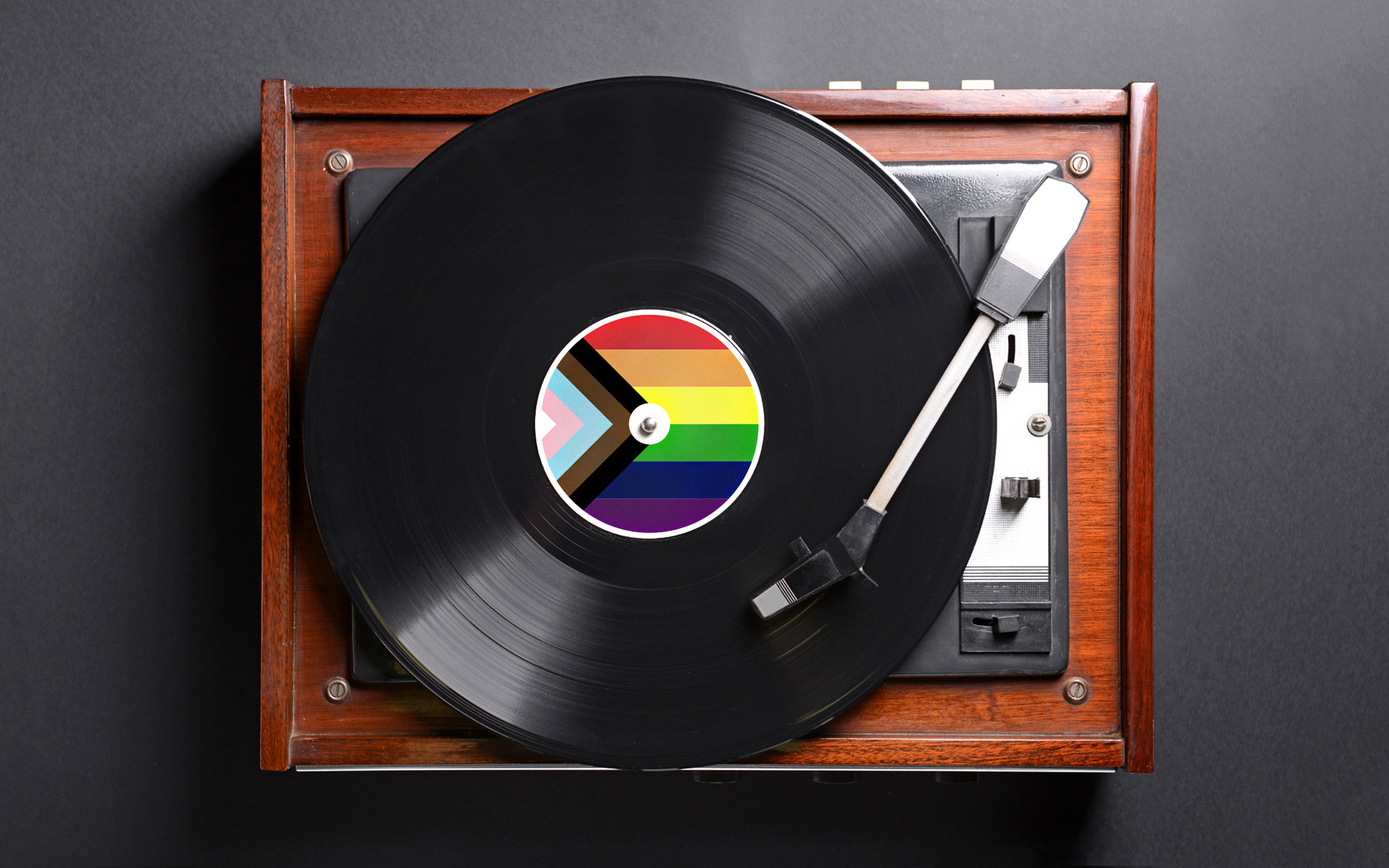The year 2023 was the hottest on record, and with deadly and destructive natural disasters around the world like forest fires, floods, and extreme storms, the effects of climate change are impossible to ignore. Artists have been working to increase awareness of conservation since the environmental movement in the 1960s, but as this playlist will demonstrate, there are many contemporary artists who are also adding their voices to the cause. With Earth Day on April 22, now is a great time to give these songs about climate change and the environment a spin, and to reflect on ways we can lean into our collective responsibility.
‘Watch it Fall’ by Billy Strings
From the 2019 album Home, bluegrass artist Billy Strings directly references climate change in his song “Watch it Fall.” He calls out the melting glaciers in the Arctic, as well as the apathy from people and politicians with the lyrics, “Chunks the size of Delaware are falling off the poles, our heads are buried in the sand, our leaders dug the hole.” Here Strings is referring to an actual iceberg bigger than the state of Delaware that broke off in Antarctica in 2017, and has since completely melted. The music video shows Strings on a train moving through the US, depicting some of the very landscapes that are in danger. His chorus asks the bleak question, “How long until there’s nothing left at all?” Expressed so matter-of-fact that the outcome seems inevitable, Strings invites the listener to ponder whether to sit back and watch it happen, or take action while there is still time left.
‘Big Yellow Taxi’ by Joni Mitchell
Joni Mitchell’s “Big Yellow Taxi” from her 1970 Ladies of the Canyon album, is one of the most iconic songs addressing environmental conservation. The line “Hey farmer, farmer, put away the DDT now,” is an interesting time stamp from the song’s release, and a hopeful reminder that some environmental disasters can be fixed. The lyric points to Rachel Carson’s 1962 book Silent Spring that brought awareness to the impact of the insecticide DDT on the bald eagle population as well as human health. In 1972, the EPA banned the chemical and the bald eagle population has been making a remarkable comeback ever since. The chorus, however, remains timeless: “Don’t it always seem to go, that you don’t know what you’ve got ‘til it’s gone? They paved paradise, put up a parking lot.” The bright chord progression, Joni’s pure high-pitched voice, and the laugh at the end reels the listener in for a good time, while leaving them with the warning that if we’re not careful, we’ll be longing for the paradise we destroyed.
‘4 DEGREES’ by ANOHNI
A change of four degrees in the Earth’s global temperature is predicted to be catastrophic to how we live our everyday lives. ANOHNI highlights this with rhythmic repetition in her song “4 DEGREES” from her 2016 album HOPELESSNESS. On her Bandcamp, she refers to the song as “a bombastic dance track celebrating global boiling and collapsing biodiversity.” While that sounds counterintuitive, ANOHNI uses the song as a method of inward reckoning. She says, “I have grown tired of grieving for humanity, and I also thought I was not being entirely honest by pretending that I am not a part of the problem. ‘4 DEGREES’ is kind of a brutal attempt to hold myself accountable, not just valorize my intentions, but also reflect on the true impact of my behaviors.” The point of view of “4 DEGREES” makes it unique from other songs about climate change, and serves as a reminder that doing nothing could very well be like chanting for the world to burn.
‘Mercy Mercy Me (The Ecology)’ by Marvin Gaye
In what is arguably one of the most poignant songs about the environment of all time, Marvin Gaye’s “Mercy Mercy Me (The Ecology),” longs for the way things used to be, before the Earth’s skies, ocean, and land were polluted, and before people and animals were suffering because of it. Released in 1971 on his landmark What’s Going On album, the song captures the sentiments of the height of the environmental movement with lyrics like, “Mercy, mercy me, things ain’t what they used to be, oil wasted on the ocean and upon our seas, fish full of mercury.” The conversation of the time preceded a public understanding of the changing climate due to harmful human practices, but now we know how it is all intertwined.
‘The Rape of the World’ by Tracy Chapman
Singer-songwriter Tracy Chapman has opted out of the spotlight for the most part, but the resurgence of her 1988 song, “Fast Car,” covered by Luke Combs, has reminded people how much of a treasure she is. After the two performed the song together as a duet at the 2024 Grammys, Chapman’s original version shot to No. 1 on iTunes. Also worthy of a resurgence for it’s powerful message on climate change is Chapman’s song “The Rape of the World” from her 1995 album New Beginning. The song is a cry for the planet and its degradation, anthropomorphizing Mother Earth being pillaged and violated for her natural resources with lyrics like, “She has been clear-cut, she has been dumped on, she has been poisoned and beaten up, and we have been witness to the rape of the world.” With such evocative language, Chapman gives a call to action to protect and preserve the very place that gives us life.
‘all the good girls go to hell’ by Billie Eilish
From Billie Eilish’s 2019 debut album, WHEN WE ALL FALL ASLEEP, WHERE DO WE GO?, the song “all the good girls go to hell” may seem cryptic in its lyrics, but in an interview with Vulture, FINNEAS, Billie’s brother and producer, confirms it is in fact about climate change. He says, “If there were a God and a Devil, if you believe that there are, the idea that humans have made such a mess of the planet at this point that they’re both talking to each other like, ‘What’s going on? Why did they do all of this?’ That was an appealing concept.” Most notably, the lyrics say, “Hills burn in California, my turn to ignore ya, don’t say I didn’t warn ya.” FINNEAS explains how he and Billie grew up in California and have only experienced natural disasters like wildfires and floods in recent years. Billie’s haunting vocals and the dark imagery of the lyrics artfully convey a sense of despair and foreboding about the future of the Earth if significant changes are not made.
‘Feels Like Summer’ by Childish Gambino
Childish Gambino (Donald Glover) first released the song “Feels like Summer,” as a single in 2018, and then as a track titled “42.26,” on his 2020 album 3.15.20. The animated music video depicts Glover walking in a blasé manner while sun beats down on him as he encounters various hip-hop artists and public figures. Though “Feels Like Summer” is about more than just climate change, the song is a commentary on the state of the world and our place in it. He sings, “Every day gets hotter than the one before, running out of water, it’s about to go down, Air that kill the bees that we depend upon, birds were made for singing, waking up to no sound.” The song urges for change of our current ways, including what causes the temperatures to rise, use up our finite resources, and harm the creatures that have no say in their destruction.
‘XS’ by Rina Sawayama
Rina Sawayama’s song “XS” (pronounced “excess”) from her album Sawayama, takes a critical look at consumer culture and overconsumption. Released in 2020, Sawayama said at the time of the release, “‘XS’ is a song that mocks capitalism in a sinking world. Given that we all know global climate change is accelerating and human extinction is a very real possibility within our lifetime it seemed hilarious to me that brands were still coming out with new makeup palettes every month and public figures were doing a gigantic house tour of their gated property in Calabasas in the same week as doing a ‘sad about Australian wildfires’ Instagram post.” In a time of TikTok hauls and trends that come and go, “XS” is a reminder that these luxuries come at a cost to the people whose labor is exploited to create the goods we consume, as well as the environment.
‘1 Sun’ by Miley Cyrus
Miley Cyrus has been singing songs about climate change throughout her career, starting with the song “Wake Up America” from her Breakout album in 2008. As she got more experimental with her 2015 album Miley Cyrus & Her Dead Petz, she returned to the topic in a more psychedelic fashion than her Hannah Montana days with the song “1 Sun.” She sings, “We need to take time to replace what’s stolen from mother nature, we only had one sun, one moon, one me, one you.” Cyrus drives this message home in a performance from her Milky Milky Milk tour, where she dresses up as the sun. Just 22 years old at the time and coming off of her huge commercial success of her Bangerz album, Cyrus released Dead Petz independently and for free on SoundCloud. Her ambition to collaborate with the Flaming Lips and create something non-commercial with a greater social message like “1 Sun” was gutsy in hindsight, and hopefully her recent Record of the Year Grammy for “Flowers” will bring more attention to this track.
‘The Seed’ by AURORA
A Native American proverb reads, “When the last tree is cut down, the last fish eaten, and the last stream poisoned, you will realize that you cannot eat money.” Norwegian singer-songwriter AURORA uses this as inspiration for one of her songs about climate change “The Seed” from her 2019 album A Different Kind of Human (Step II). In an interview with NME, AURORA shares how “The Seed” is “angry and native in the old, ancient human emotional kind of way. It’s about the environment. It feels refreshing to get that out.” The chorus repeats, “You cannot eat money, oh no,” hammering home that ultimately it is the Earth’s natural resources that sustain us, and if we run those resources dry in the pursuit of profit, we will cease to exist.
Even though it can be difficult and overwhelming to confront the realities of the climate crisis, engaging with songs about climate change and the environment can be a catalyst for meaningful dialogue, advocacy, and change. It’s hard not to be moved by the songs about climate change on this playlist, and perhaps they’ll inspire you to contribute your voice to the cause and write the next environmental anthem.
STUDY SONGWRITING AT BERKLEE ONLINE


